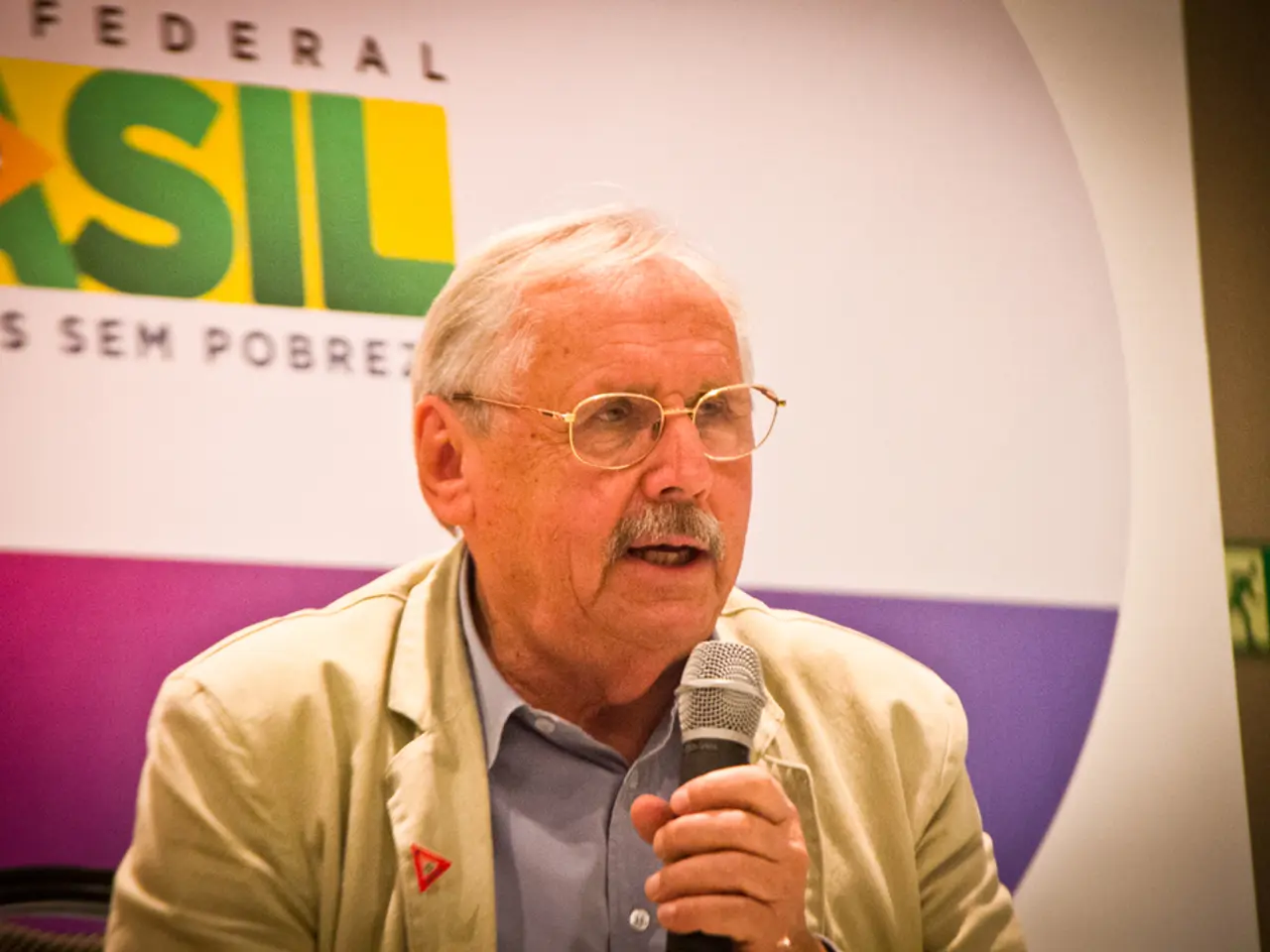Discussing Practical Measures for Enhancing European Security
In recent years, Finland has been making waves in the international arena with its shift towards a more proactive and values-driven foreign and security policy. This new approach, often referred to as neo-idealism, stands in contrast to traditional power politics and great power spheres of influence.
Historically, Finland's foreign policy was characterised by its neutrality during the Cold War, leading to a more inward-looking approach. However, times have changed, and Finland is now actively participating in collective security arrangements that protect shared values. The decision to join NATO in 2023 is a testament to this shift, as Finland chose to be part of a collective for protecting democratic values and territorial sovereignty, stepping away from neutrality and self-centeredness towards a more engaged and value-driven policy stance.
One of the key challenges Finland faces is the instrumentalisation of migrants by Russia as a form of hybrid warfare. The Finnish government has taken steps to address this issue, including the enactment of a new border security law that empowers the government to turn down asylum applications. This response underscores the prioritisation of national values and security in the face of authoritarian tactics, consistent with neo-idealism's focus on maintaining sovereignty based on principles, not merely power.
Atte Harjanne, a Green member of the Finnish parliament and a reserve captain in the Finnish Defence Forces, is a strong advocate for a more active role in defending democracies under attack. He considers himself part of a new, values-based approach to geopolitics, known as "neo-idealism", which is emerging from Eastern Europe.
Economic growth is essential for the green transition, as it requires a massive wave of investment. However, the equation between economic growth and wellbeing in a prosperous country like Finland is questionable. Focusing on degrowth or post-growth might hinder the ability to invest in the green transition.
Finland's security model relies on the welfare state to foster mutual trust and common purpose among citizens. This approach has been instrumental in maintaining stability and peace within the country.
In the face of global challenges, Finland continues to emphasise its commitment to values-based decision-making. The country's foreign and security policy is vocal about values but also needs to cooperate with regimes that don't share these values. This presents a dilemma, as Finland navigates the delicate balance between its principles and the need for international cooperation.
As Europe faces increasing security threats, Finland's stance on NATO membership and its commitment to collective security arrangements are more relevant than ever. If the US is no longer willing to come to the defense of its European allies, Europe must reinforce its deterrence, build a strong European pillar within NATO, and strengthen its military capabilities and defense industry.
In conclusion, Finland's recent foreign and security policy, marked by the rejection of great power spheres of influence, commitment to NATO membership, and defense against hybrid threats, aligns well with the core aspects of neo-idealism. It champions a values-centered approach over pure power politics, highlighting agency, sovereignty, and collective security among like-minded states.
- As Finland navigates the delicate balance between its values and the need for international cooperation, its stance on war-and-conflicts, particularly the instrumentalization of migrants by Russia as a form of hybrid warfare, reflects a shift from neutrality towards a more engaged and value-driven policy stance.
- The Finnish foreign and security policy's focus on politics centered around shared values and collective security arrangements, such as its commitment to NATO, demonstrates a shift from traditional power politics towards a values-based approach known as neo-idealism, which prioritizes principles over power.





